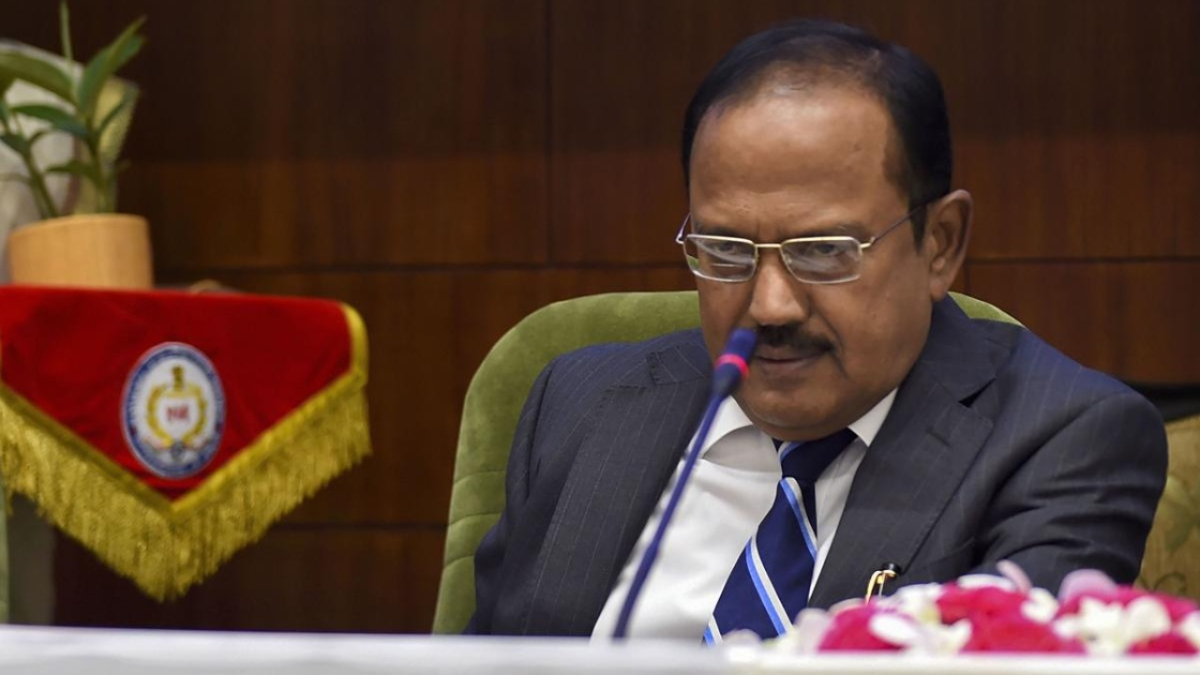Now Reading: Ajit Doval Exits SCO Meet Over Pakistan’s ‘Fictitious’ Map
-
01
Ajit Doval Exits SCO Meet Over Pakistan’s ‘Fictitious’ Map
Ajit Doval Exits SCO Meet Over Pakistan’s ‘Fictitious’ Map

In a powerful diplomatic gesture, Ajit Doval, India’s National Security Advisor, walked out of a virtual meeting of the Shanghai Cooperation Organisation (SCO) in September 2020. The dramatic exit was in direct protest against Pakistan’s representative, who deliberately displayed a newly issued political map that claimed Indian territories as its own. This act was seen as a blatant violation of SCO protocol and an affront to India’s sovereignty.
A Blatant Violation of Protocol
The incident unfolded during a virtual meeting of SCO National Security Advisors, a format necessitated by the COVID-19 pandemic. Pakistan’s representative, Dr. Moeed Yusuf, used a backdrop for the video conference that featured a political map showing the Indian territories of Jammu and Kashmir, as well as Junagadh in Gujarat, as part of Pakistan. This move was a clear breach of the SCO Charter, which prohibits member states from bringing bilateral disputes into a multilateral forum.
India’s delegation, led by Ajit Doval, immediately raised a strong objection to this provocative act. The host of the meeting, Russia, also attempted to persuade Pakistan to remove the map, but their requests were ignored. In a decisive show of protest and a firm message that India would not tolerate any challenge to its territorial integrity, Doval left the meeting.
This walkout was not just a spontaneous reaction but a calculated diplomatic move. It underscored India’s unwavering stance on its territorial sovereignty and sent a clear signal to both Pakistan and the international community. The action was later praised by Russia’s National Security Council Secretary, Nikolai Patrushev, who expressed his personal appreciation for Doval’s principled stand, reinforcing that Russia did not support Pakistan’s actions.
Doval’s Track Record as a ‘Super Spy’
The incident also brought renewed attention to Ajit Doval’s storied career, often described as that of a “super spy.” Before becoming the National Security Advisor, Doval had an illustrious career in intelligence and law enforcement. His exploits include a period of deep undercover work in Pakistan, posing as a Muslim cleric, to gather critical intelligence during the 1971 India-Pakistan war. He was also instrumental in key domestic operations, such as the 1988 Operation Black Thunder, where he infiltrated the Golden Temple to gather intelligence on militants.
Doval’s history of bold and unconventional actions has defined his approach to national security. His walkout from the SCO meeting is consistent with his reputation for taking a firm, no-nonsense approach to safeguarding India’s interests and territorial integrity. The incident served as a powerful reminder of India’s resolve and its refusal to be intimidated on the international stage.








